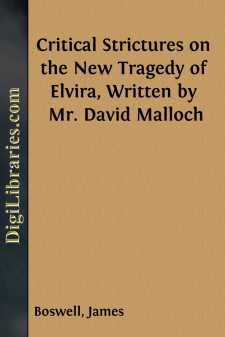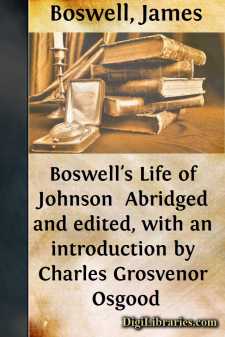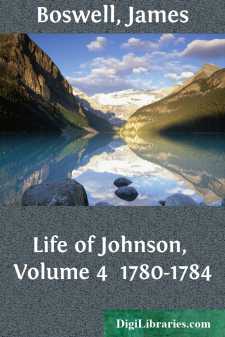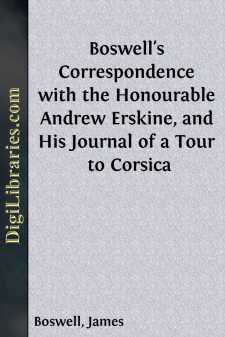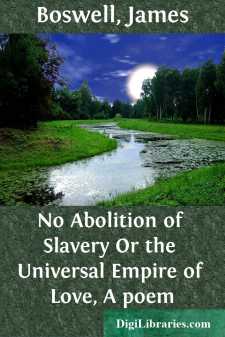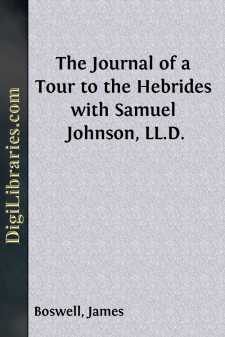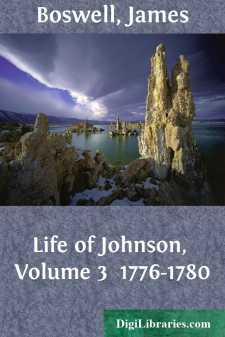Categories
- Antiques & Collectibles 13
- Architecture 36
- Art 48
- Bibles 22
- Biography & Autobiography 813
- Body, Mind & Spirit 142
- Business & Economics 28
- Children's Books 14
- Children's Fiction 11
- Computers 4
- Cooking 94
- Crafts & Hobbies 4
- Drama 346
- Education 46
- Family & Relationships 57
- Fiction 11829
- Games 19
- Gardening 17
- Health & Fitness 34
- History 1377
- House & Home 1
- Humor 147
- Juvenile Fiction 1873
- Juvenile Nonfiction 202
- Language Arts & Disciplines 88
- Law 16
- Literary Collections 686
- Literary Criticism 179
- Mathematics 13
- Medical 41
- Music 40
- Nature 179
- Non-Classifiable 1768
- Performing Arts 7
- Periodicals 1453
- Philosophy 64
- Photography 2
- Poetry 896
- Political Science 203
- Psychology 42
- Reference 154
- Religion 513
- Science 126
- Self-Help 84
- Social Science 81
- Sports & Recreation 34
- Study Aids 3
- Technology & Engineering 59
- Transportation 23
- Travel 463
- True Crime 29
Critical Strictures on the New Tragedy of Elvira, Written by Mr. David Malloch
by: James Boswell
Categories:
Description:
Excerpt
INTRODUCTION
"WEDNESDAY 19 JANUARY [1763]. This was a day eagerly expected by Dempster, Erskine, and I, as it was fixed as the period of our gratifying a whim proposed by me: which was that on the first day of the new Tragedy called Elvira's being acted, we three should walk from the one end of London to the other, dine at Dolly's, & be in the Theatre at night; & as the Play would probably be bad, and as Mr. David Malloch, the Author, who has changed his name to David Mallet, Esq., was an arrant Puppy, we determined to exert ourselves in damning it."
George Dempster, aged thirty, a Scots lawyer who by putting his fortune under severe strain had been elected Member of Parliament for the Forfar and Fife burghs, was in London in his official capacity. Andrew Erskine, aged twenty-two, younger son of an impoverished Scots earl, was waiting in London till the regiment in which he held a lieutenant's commission should be "broke," following the Peace. James Boswell, heir to the considerable estate of Auchinleck in Ayrshire, also aged twenty-two, had come to London in the previous November in an attempt to secure a commission in the Foot Guards. Dempster, Erskine, and Boswell had constituted themselves a triumvirate of wit in Edinburgh as early as the summer of 1761, and had already made more than one joint appearance in print.
David Mallet, now in his late fifties, was also a Scotsman. "It was remarked of him," wrote Dr. Johnson many years later, "that he was the only Scot whom Scotchmen did not commend." Scotsmen considered him a renegade. They felt that he had repudiated his country in changing his distinctively Scots name, perhaps also in learning to speak English so well that Johnson had never been able to catch him in a Scotch accent. They would have been willing to forget his humble origins if he had not shown that he was ashamed of them himself. But when he allowed himself to assume arrogant manners and to style himself "Esq." (a kind of behavior especially offensive to genuine men of family, like our trio), they chose to remember, and to remind the world, that he was the son of a tenant farmer (a Macgregor, at that), that as a boy he had been willing to run errands and to deliver legs of mutton, and that for a time in his youth he had held the menial post of Janitor in the High School of Edinburgh.
It was not merely the Scots who had their knives out for Mallet. He was generally unpopular, apparently for adequate reasons. He had accepted a large sum of money from the Duchess of Marlborough to write a life of the Duke, of which he never penned a line, though he pretended for years that he was worn out by his labors in connection with it. He courted Pope, accepted kindnesses from him, and then attacked him after he was dead. He published Bolingbroke's posthumous infidelities, causing Johnson to remark that Bolingbroke bad charged "a blunderbuss against religion and morality" and had "left half a crown to a beggarly Scotchman, to draw the trigger after his death." His behavior towards the memory of his friend and collaborator Thomson was thought to be less than candid....


